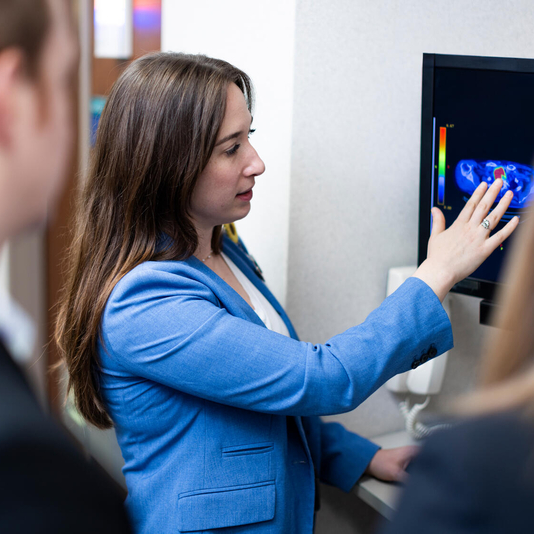-
Thawing a Frozen Shoulder
ROCHESTER, Minn. — Worsening shoulder pain can be a sign of frozen shoulder (adhesive capsulitis). Whether treated or not, most cases of frozen shoulder improve on their own over the course of 12 to 18 months, according to the August issue of Mayo Clinic Health Letter.
The shoulder joint is made up of bones, ligaments and tendons. Surrounding the joint is the shoulder capsule, made up of strong connective tissue. Frozen shoulder occurs when the capsule thickens and tightens around the shoulder joint. Doctors don't know exactly what causes this change, which typically occurs slowly.
First, shoulder pain occurs with any movement and is usually worse at night. Pain increases and can be significant with or without movement. As a result, people tend to use the arm less, shoulder range of motion becomes more limited and the shoulder stiffens.
Next is the frozen stage. The shoulder pain diminishes especially when it's not used. The shoulder's range of motion decreases notably, and it becomes even stiffer. Activities such as combing hair or putting on a belt may be nearly impossible.
Finally, the shoulder thaws, the range of motion begins to improve but some pain may linger.
Without treatment, a frozen shoulder will eventually thaw, but full range of motion will likely not return. With relatively simple treatments, most people experience improvements.
Treatment typically includes nonprescription pain relievers to reduce pain and inflammation. If needed, stronger anti-inflammatory drugs could be used. Corticosteroid injections into the shoulder joint during the first stage may be of particular benefit for pain relief and may speed recovery.
Treatment also involves moving and stretching the shoulder to help prevent further loss of shoulder function. A physical therapist can help with exercises to maintain and regain as much shoulder mobility as possible. Some patients benefit from transcutaneous electrical nerve stimulation (TENS). This therapy delivers small electrical impulses through electrodes placed on the shoulders.
Mayo Clinic Health Letter is an eight-page monthly newsletter of reliable, accurate and practical information on today's health and medical news. To subscribe, please call 800-333-9037 (toll-free), extension 9771, or visit Mayo Clinic Health Letter Online.







